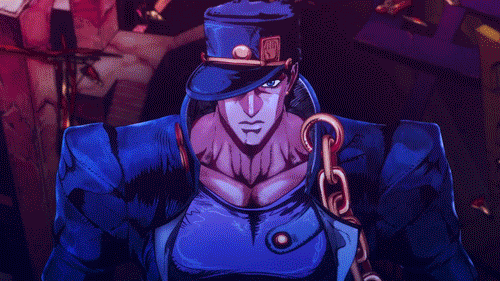Hey, it's HSMediaNerd with another analysis! This time, it's of a poem. Hope you enjoy!
The poem “The Mad Girl’s Love Song”, written by Sylvia Plath, is told from the point of view of a female narrator. This poem does not have a distinct plot, but instead focuses on the narrator’s thoughts and emotions, as she reflects on a person she loves who may or may not exist. The poem begins with the narrator reacting to her vision of love. She believes what she sees, but still lacks confidence in whether or not her vision depicts a real memory or fantasy. The poem is not about a mad girl writing a song for her non-existent lover, but is instead about a girl trying to distinguish between her optimal pure love fantasy and the painful reality of unrequited love.
The first stanza of “The Mad Girl’s Love Song” reads as follows, setting the stage for the main idea of the poem: “I shut my eyes and all the world drops dead; / I lift my lids and all is born again. / (I think I made you up inside my head.),” (Plath 1-3). The first line indicates how the narrator halts her perception of the world when she closes her eyes, while the second line expresses how she can instantly engage in another reality when she opens them. This implies how the narrator only believes in what she sees, and demonstrates the flexibility of her mind. Her thoughts are toggling between a bright reality full of love and hope, and a darker one, depleted of emotion. With her eyes open, she realizes that she may be delusional. This is displayed by how she adds in parenthesis, “I think I made you up inside my head”. The parentheses suggest an afterthought, which shows how the narrator questions her own visual experience, and the term “I think” implies self-doubt. This self-reflection presents how the narrator has not entirely descended into madness, as she is still able to question her sanity, and she does so multiple times to accentuate this point.
The poem’s second stanza reads as follows, utilizing similar motifs and even repeating the first line of the earlier stanza: “The stars go waltzing out in blue and red, / And arbitrary blackness gallops in; / I shut my eyes and all the world drops dead,” (Plath 4-6). The main subjects of the first line are the “waltzing” stars in colors that are not typically associated with real stars, suggesting that they are part of the ephemeral fantasy, disappearing in any moment as the “arbitrary blackness gallop[s] in”. The blackness represents how quickly her beautiful fantasy can be taken away without any warning, and also may represent a fear of the unknown. The narrator’s beautiful reality being overtaken by sudden darkness and uncertainty scares her, so she instantly blocks out the painful emotion by shutting her eyes. This suggests that she maintains some control over her powerful emotions, but blocking out this painful reality, her dreams take over, adding to her confusion.
In the third stanza, the narrator is speaking about her lover, questioning his existence: “I dreamed that you bewitched me into bed / And sung me moon-struck, kissed me quite insane. / (I think I made you up inside my head),” (Plath 7-9). Following the previous stanza, in which the narrator shuts her eyes to stop her emotions, the narrator now talks about a dream, and this is the first time she has not used parenthesis to describe anyone but herself. This implies that the lover is not an afterthought and may have existed, but the narrator further complicates whether this claim is true by using words such as “bewitched”, “moon-struck”, and the phrase “kissed me quite insane.” The dream may be a result of murky memories, detailing the couple’s intimacy. If the man “bewitched” or tricked the narrator, his intentions may have lacked sincerity. The terms “moon-struck” and “kissed me quite insane” further emphasize her frenzied emotional state and suggest a moment of madness, and confusion. Finally, the sentence “(I think I made you up inside my head.),” reappears, further showing how the narrator doubts her sanity, just like how she did in the first stanza. Villanelle is used to represent a recurring thought, showing how the narrator is unsure of her lover’s existence after that particular stanza. It is not used in the second and fourth stanza because those stanzas take place when the narrator is able to perceive reality.
The fourth stanza reads as follows: “God topples from the sky, hell’s fires fade: / Exit seraphim and Satan’s men: / I shut my eyes and all the world drops dead,” (Plath 10-12). This stanza describes the descent of her sublime reality and into sheer tragedy, as heaven and hell are destroyed and the angels and devils depart. Reality again becomes overwhelmingly painful and it can no longer be tolerated. The only way to escape is to retreat back into her dreams and delusions, “shut[ting]…[her] eyes…[until] all the world drops dead.” This is another villanelle, and just like in the second stanza, it is used as the gateway into the narrator’s inner mind.
In the fifth stanza, the narrator speaks directly to her lover again: “I fancied you’d return the way you said, / But I grow old and I forget your name. / (I think I made you up inside my head.),” (Plath 13-15). This stanza reveals clouded memories regarding how the narrator’s dubious lover did not keep promises. However, unlike the third stanza, which concerns a dream that may have resulted from a memory, this stanza directly refers to a real memory. The narrator is able to recall exactly what her lover said, but also refers to growing old and forgetting his name, suggesting that this encounter occurred long ago. If the narrator is an old woman instead of a young girl, then it makes even more sense why these memories would be confusing, since memories commonly fade over time. The narrator forgetting the man’s name may be somewhat defensive instead of fearful, as she does not need to close her eyes to make his memory go away in this instance. The stanza ends with the classic villanelle “(I think I made you up inside my head.),” again showing how she doubts that these memories are actual events. The poem ends with the narrator reflecting back on how her lover never returned to see her, pulling her back into reality.
The final stanza reads as follows: “I should have loved a thunderbird instead; / At least when spring comes they roar back again. / I shut my eyes and all the world drops dead. / (I think I made you up inside my head.),” (Plath 16-29). The first two lines express the narrator’s regret for choosing an insincere lover who never returns over choosing someone who would have stayed with her. The fact that she argues how a “thunderbird” is a better lover than the one who left her shows how in her thought process, she has given up on deciding whether he actually exists, but instead focusing on a lover that would have been better for her. However, the final two lines are the same villanelles that have appeared before: “I shut my eyes and all the world drops dead. / (I think I made you up inside my head.).” The first line, as stated earlier, shows how she escapes into her mind, running away from the cruel reality of unrequited love. The second line, which is also the final line of the poem, shows how the narrator believes that the only way she can see her lover is in her mind. Whether those memories are true or false is up to the reader to decide.
These questions still remain: is the narrator truly mad? Does the lover actually exist, or is he a figment of the narrator’s imagination? The poem does not directly answer these questions, but one aspect is certain: the answer is not consequential. By the end of the poem, it is not reality that matters, but the emotions spurred from these reflections. The emotions of unrequited love, intimacy, and regret are all too real for the narrator. This poem recounts her feelings of elation, madness, and the need to escape from these intense emotional states. Her mind vacillates between dreams and memory, and concludes in a reality that is still somewhat uncertain.
Works Cited
Plath, Sylvia. "Mad Girl's Love Song." - Famous Poems, Famous Poets. All Poetry, n.d. Web. 23
July 2015. <http://allpoetry.com/Mad-Girl's-Love-Song>.







